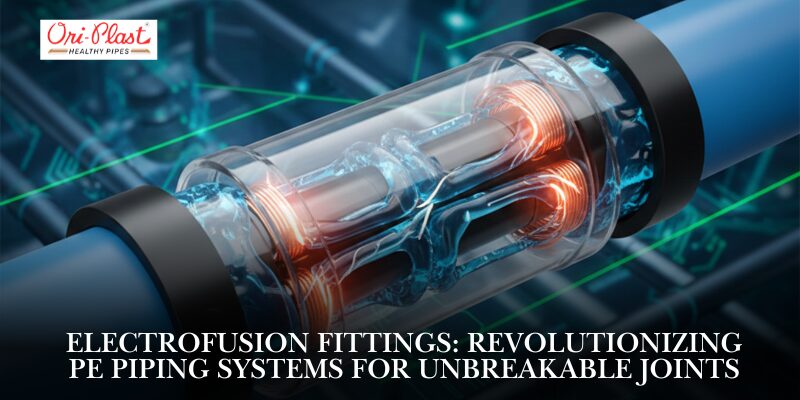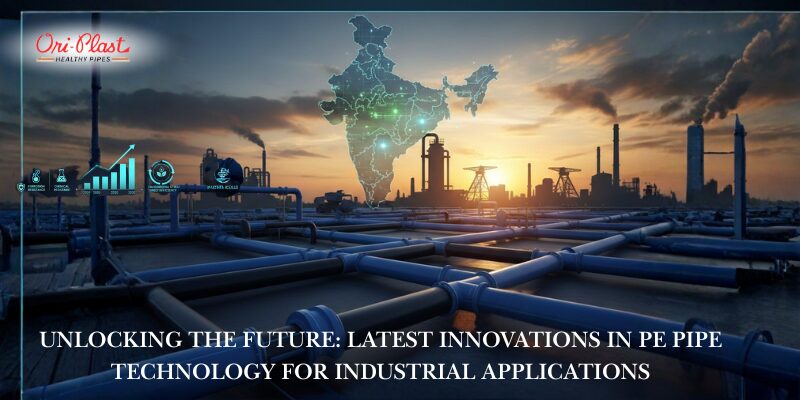- Advantages of Polyethylene Pipe in drainage systems
- Durability of PE Pipes.
- How to increase longevity of PE pipes
The pipe material used is one of the most important aspects of a drainage system. The essential factor to consider is that the pipe material must be durable and long-lasting to avoid problems in the future. In this blog post, we will be discussing the durability and Advantages of Polyethylene Pipe in drainage systems.
PE pipes are made up of polyethylene, which is a thermoplastic polymer. This type of material is known for its high strength-to-density ratio, as well as its flexibility, resistance to chemical and environmental damage, and low cost. PE pipes are often used in sewage systems because they are less likely to leak or burst than other types and kinds of pipes.
So, without further ado, let's get started on the subject and attain a deeper understanding of the durability and Advantages of Polyethylene Pipe.
Why is the durability of Polyethylene Pipe vital in drainage systems?
In such systems, adverse conditions that challenge the durability of the materials included may be found in the soil, air, and effluent. Materials in pipes react differently in chemically corrosive environments. Polyethylene is one of the most inert materials in today's storm drainage market. They are also highly resistant to the effects of abrasives and immune to galvanic corrosion.
What factors affect the durability of PE pipes?
There are a few factors that may affect the durability of PE pipes. In non-pressure drainage applications,
- Corrosion,
- Erosion (abrasion from effluent),
- Degradation effects of weathering, such as ultraviolet light exposure, freezing and thawing cycles, or subzero temperatures, are the three main durability problems.
It is highly possible that more than one unfavorable situation will exist in any given installation. When this happens, the pace of material degradation might be faster than the total of all the problems taken together.
How can the longevity of PE pipes be increased?
One of the vital considerations when choosing a piping material is its long-term durability. For many applications, polyethylene (PE) pipes are a good choice thanks to their excellent resistance to corrosion and abrasion. However, PE pipes are not immune to degradation. In fact, their lifespan can be shortened by several factors, including chemical attack, physical damage, and more.
So what can be done to extend the longevity of PE pipes? Here are a few tips:
- Operating conditions: Temperature, pressure, and even weather can all have an effect on the overall quality of a joint.
- The immediate surroundings: Keep harsh cleaners and chemicals away from PE pipes.
- Methods of installation: Installation methods and proper and correct installation are two of the most important factors influencing the life cycle of any PE pipe. PE pipes require protection from physical damage during installation and use.
- Loading of external pipes: All buried pipelines are subjected to a wide range of conditions that can have an impact on product performance and life. When designing a buried system, bedding and side fill requirements require consideration.
You can help ensure that your PE pipes have a long and trouble-free life by following these tips.
What are the Advantages Polyethylene pipe in drainage systems?
PE pipes are becoming increasingly popular in such systems, and there are several reasons for this.
Some of them are listed below:
- PE pipes are durable and can withstand high-level water pressure.
- They are flexible and bendable around corners, which makes them perfect for these types of systems.
- PE pipes are lightweight and easy to handle, which makes them excellent for DIY projects.
- PE pipes are easy to connect and disconnect, which makes them ideal for sewage systems.
- PE pipes are resistant to chemicals and fertilizers, which makes them perfect for drainage systems.
- PE pipes are resistant to corrosion and abrasion, which makes them excellent for sewage systems.
- PE pipes are resistant to freezing, which makes them best suited for drainage systems.
- PE pipes are available in a wide range of sizes, which makes them ideal for sewage systems.
- PE pipes are easy to install, which makes them ideal for drainage systems.
Are there any disadvantages to using PE pipes?
Polyethylene pipes, even with their many advantages, are not resistant to oxidizing acids, ketones, or chlorinated hydrocarbons. Also, if PE pipes are exposed to UV light for extended periods, the UV rays can break down the pipe material and cause it to become brittle and cracked.
Conclusion
Overall, the many Advantages of Polyethylene Pipe makes them durable and long-lasting option for drainage systems. They are resistant to corrosion and generally have a longer lifespan than other types of pipes. Hence, they are the most sought-after when looking for pipes for drainage.
If you are looking for the highest-quality and best pipe manufacturer in Kolkata, we recommend that you contact us. We are the leading manufacturer of PE pipes in the region and can provide you with the best products and services.




